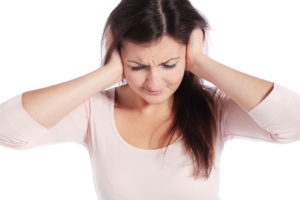What causes tinnitus?
- Posted on: Mar 5 2015
Tinnitus is a condition of a perception of sound, ringing, or any other audiologic sensation in the ear without something in environment actually making that noise. Therefore, it is thought of as “inner noise” that could be quite bothersome to many patients.
Tinnitus could be perceived in one side or both sides, or rarely from one side to the next. In most patients, it has a flat tone and it could be perceived more so in a quiet environment. Occasionally, tinnitus may have a pulsation associated with it. Many patients also report various degrees of hearing deficit in association with the tinnitus, but not necessarily any degree of deafness.
Unfortunately, in most patients we cannot readily find the cause for the tinnitus. This has to do with lack of any specific testing that we have to pinpoint such sources. In a typical patient coming for tinnitus issues, the first line of testing is audiometric evaluation including a hearing test and possibly balance testing.
In certain patients, additional testing with blood levels or MRI or CT scan of the ears and the head might be appropriate. Unfortunately, there is no way of performing any biopsy of the inner ear in order to find out from a molecular or chemical or histologic level the degree of abnormality that the patient is experiencing in order to establish direct link to the cause.
In most patients, the treatment for tinnitus is more symptom-related. The first stage of treatment is to focus on the degree of quietness around the patient. Using what is called masking technique, patients are encouraged to have some other sound around them at most times that will prevent them from focusing on the inner noise. Even at night when trying to go to sleep, it is recommended to have either a fan or air conditioning or a radio in between stations that can provide what is called “white noise.” Some patients also invest in machines that make ambient noise to reduce the severity of the tinnitus.
Patients with ongoing medical issues have also been found to suffer more from tinnitus. Issues such as blood pressure, diabetes, and obesity have all been linked to increased incidence and intensity of tinnitus. Potentially, addressing those issues more readily can reduce the tinnitus.
Stress has also been associated with complications of tinnitus. In patients who experience quite a bit of stress, it is recommended for them to have alternate ways of relieving the pressure. Many patients who are successful in reducing sources of stress, or who respond to anxiety medicines or anti-depressants, might see incremental relief of their symptoms.
Unfortunately, there is no medical therapy that is recommended for tinnitus to directly remove the sensation of the sound. Some vitamin therapies have been shown to be effective, along with holistic medicines and acupuncture. Your doctor might recommend any of these regimens if appropriate.
For more information about tinnitus, please also refer to this enclosed brochure: Treatment option for tinnitus
Any patients suffering from tinnitus should try to see an Ear, Nose, and Throat specialist as soon as possible. Rarely, when routine testing is done, other sources are found, which could actually be of significant concern to your overall health. In those cases, it is very imperative to start treatment of the underlying causes before the condition worsens and can cause serious health hazards.
Tagged with: acupuncture, audio, audiogram, CT, ear nose throat, ENT, hearing loss, inner noise, Isaac Namdar, Isaac Namdar MD, masking, MRI, New York, new york city, non-pulsatile tinnitus, ny, NYC, Otolaryngology, Otorhinolaryngology, pulsatile tinnitus, tinnitus
Posted in: Ears


